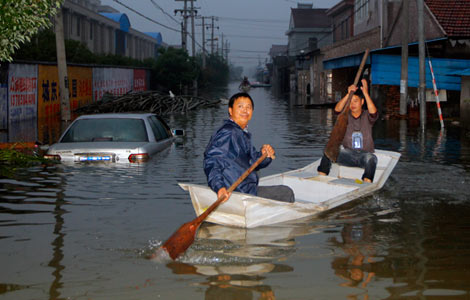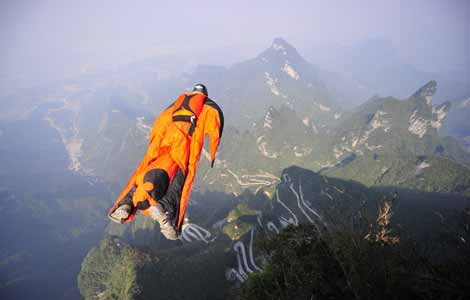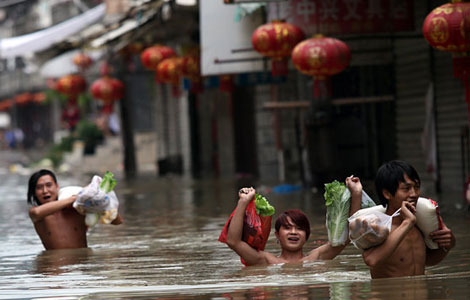Managing the risks of climate change
Updated: 2013-10-10 07:24
By Jim Leape (China Daily)
|
||||||||
Like me, you probably have house insurance. The risk of my house burning down may be small, but it is still there. So it makes sense for me to take precautions against such an eventuality. In other words, insuring your house against fire is all about risk management.
With a major event in the world of climate change - the publication of the fifth Assessment report of the Intergovernmental Panel on Climate Change - it's worth focusing on climate change as a similar risk management issue.
If it seems like a big leap from the risk of a house razed in a fire to the risk of catastrophic climate change, then let me explain. The IPCC's Fifth Assessment Report - AR5 as it's known by many - is a critical piece of work, involving hundreds of scientists from around the world. Running into thousands of pages, it is the most authoritative assessment of climate change available. Released every six years, assessment reports are published in four parts: three working group reports, followed by a combined "synthesis report". The working group reports deal with climate science, the impact of and adaptation to climate change, and mitigation of climate change.
As is the nature of such voluminous pieces of work, the AR5 is complex, nuanced and detailed. But at its heart, it carries a simple message: the climate is changing. It says greenhouse gas (GHG) emissions by humans are the main driver of this change and science is more certain than ever on this. It also says the risks posed by climate change are massive.
UN member states sign the IPCC reports, accepting its findings. But despite the warning sounded by AR5 - like the ones preceding it - the gap between what science tells should be done to prevent uncontrollable climate change and the actions taken by governments across the world is huge.
It brings me back to the issue of risk management. In spite of the IPCC and other organizations - which include even the World Bank - saying that the risks posed by a warming world are enormous, why is our response so feeble?
We know what the solutions are. Since the energy sector is the largest source of manmade GHG emissions, we have to urgently de-carbonize it. The world's dependence on fossil fuels carries huge environmental, social and economic risks. So we need to reduce the use of fossil fuels and switch to clean and renewable energy.
We have to phase out investment in fossil fuels, especially coal, and use that money to develop and generate renewable energy. Recognizing this, the World Wide Fund for Nature's (WWF's) Seize Your Power global campaign is calling on governments and financial institutions worldwide to increase investment in renewable energy by at least $40 billion over the next year.
That may be just a start, but switching to renewables in the long run is the only option. The Energy Report, the results of a WWF study, shows that a world run entirely on renewable energy is possible. Switching to renewable energy isn't just the best choice, it's the only choice we have, because the way the world produces and uses energy today is not sustainable.
Don't make the mistake of thinking that there are shortcuts. It would be nice to think that, as some argue, we can simply switch to "clean" fossil fuels like shale gas or "clean coal". The fact is, those terms are misnomers.
In the end, I come back to the simple message that science is sending us. The climate is changing. Mankind is largely to blame for that. We aren't doing enough to prevent the change. The window of opportunity is rapidly closing. We do still have time to prevent the worst effects of climate change, but the world must do much, much more to deal with this existential risk.
The author is director General of WWF International.
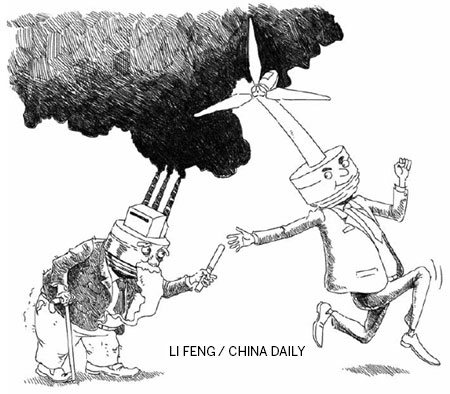
(China Daily USA 10/10/2013 page12)
Most Viewed
Editor's Picks
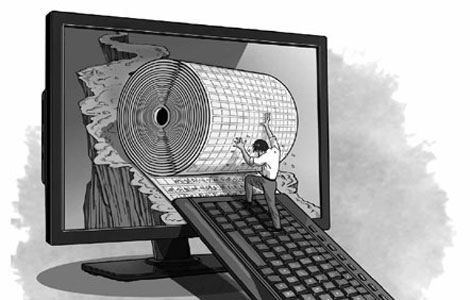
|
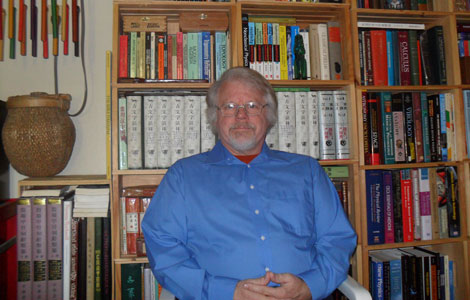
|

|

|

|

|
Today's Top News
Americans to name panda cubs at Atlanta zoo
Obama remarks show China high on agenda
Hong Kong benefits from rising renminbi
China is a major contributor to global growth
China, Australia agree to quicken FTA talks
China hits at NASA's conference ban
US investors say they are less bullish on China
Wealthy shift focus to investment: Survey
US Weekly

|

|




